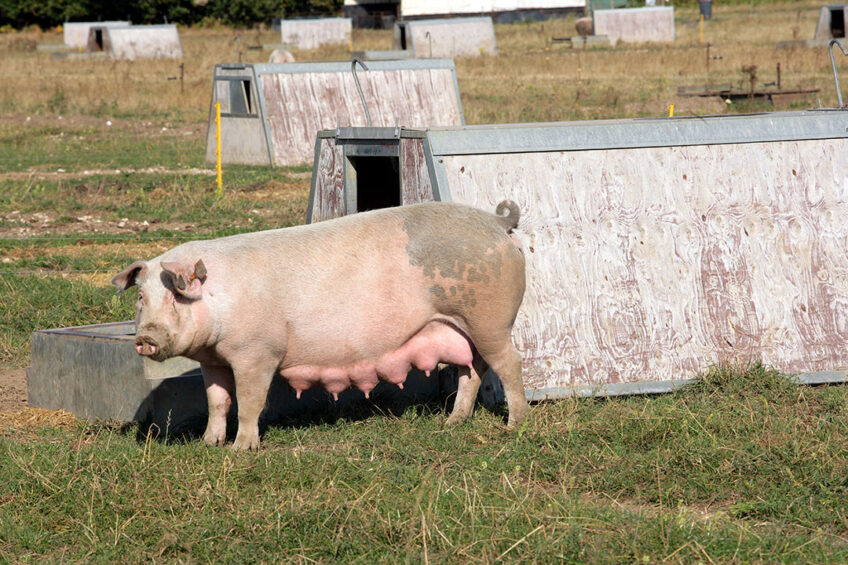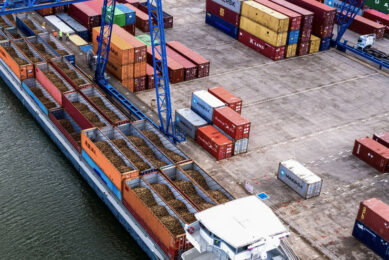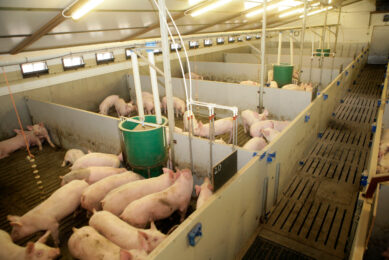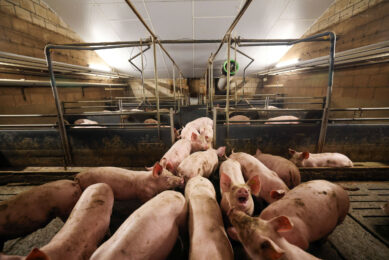UK pig industry discusses price, welfare challenges

With pig prices currently in the doldrums, delegates to the online UK Pig and Poultry Forums heard speakers talk about the need to balance consumer demands for higher animal welfare with lower emissions and greater productivity, but with reduced inputs.
Since a couple of years, the biennial British Pig and Poultry Fair holds online forums in years when no physical show is planned. This year that was foreseen for May 12. One session dealt with challenges for Europe’s pig industry. Pig prices across Europe will have to rise in order for production to remain viable, as feed wheat prices approach € 232/tonne (equivalent to £200). Feed wheat and feed barley prices have leapt by € 60/tonne (£52) and € 66/tonne (£57) respectively in the past year, yet the current GB standard pig price of € 1.71/kg (£1.474) was € 0.23/kg (£0.194) lower than May 2020 (-12%).
Pilgrim’s Pride: Pig prices need to go up
Andrew Saunders, agriculture director at Pilgrim’s Pride UK, suggested that to achieve sustainable pig production, the pig price in terms of kg needed to match the wheat tonnage price. The current disparity of prices follows a period when sales of bacon and fresh pork over the past 12 months had been extremely strong (bacon up 12% volume and 13.2% value and fresh pork 12.1% volume and 16.4% value). But Saunders warned that the growth in consumer demand for healthier foods and challenges on volume had become apparent in the past month has the UK moved out of Covid-19 lockdown.
Looking at other challenges ahead, he pointed to likely further developments of farm standards, an increased focus on worker welfare and research and development and said there was likely to be further debate on gene editing and use of processed animal proteins, following the European Commission’s recent ruling to reauthorise the use of pig, poultry and insect protein in animal feed.
Morrisons: Focus on the sow
Sophie Throup is head of agriculture, fisheries and sustainable sourcing at the UK’s fourth largest retailer Morrisons. She said the supermarket worked closely with veterinary consultants and was placing a renewed focus on the sow.
Free farrowing systems and a drive to demonstrate that pigs are content and had great health and welfare were key issues for the retailer, which has nearly 500 UK stores employs 123,000 staff. Throup said Morrisons had been working with the University of Leeds for the past couple of years on environmental enrichments for pigs.
Morrisons is looking to get to net 0 carbon on its first pig suppliers by 2025 and Throup said reducing greenhouse gas emissions is becoming an increasing concern among shoppers. Origin and type of feed, such as soya reductions, along with manure management were ways that farmers could drive down emissions but she warned “there was no silver bullet.”

NPA: Challenges are reputational and political
Rob Mutimer, Norfolk outdoor pig farmer and National Pig Association (NPA) chair, said the challenges ahead were both reputational (bad publicity from welfare and environmental groups, product quality, flavour, tenderness, boar taint and intermuscular fat) and political, with pressure growing to ban farrowing crates and new farming rules for water, alongside pressure to drive down carbon emissions and reduce soya.
But there are opportunities too, Mutimer said, as long as producers took advantage of genetic improvements, better tailored nutrition and new technologies and data capture methods. Pork, he said, was particularly versatile and had huge added value potential, as well as being a considerably cheaper protein when compared to beef and lamb.
Opening up of markets to China and niche markets in Australia would be very important too.
The online forums attracted 980 registrations and each forum averaged 300 attendees. A next “live” edition is planned for May 2022, to be held in in Stoneleigh Park, Warwickshire, UK.












